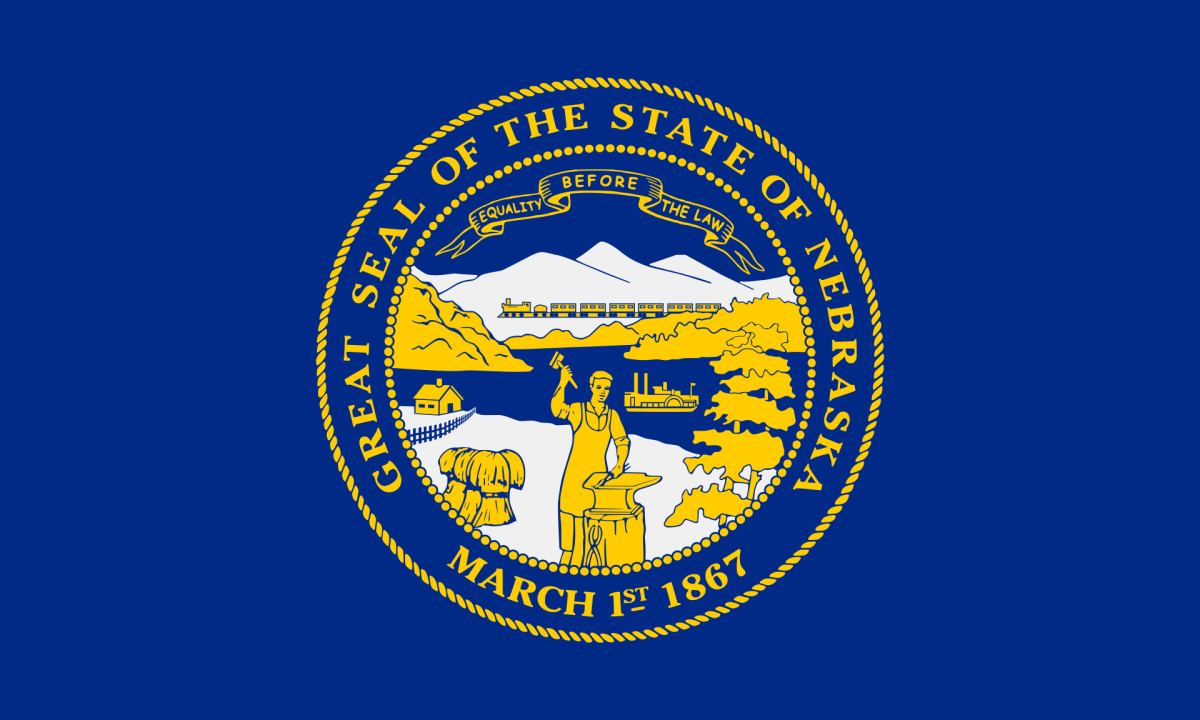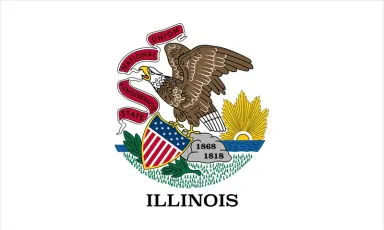Nebraska Trucking Laws

Nebraska has made significant strides in traffic safety in recent years, in keeping with its commitment to the "Toward Zero Deaths" initiative and striving for zero fatalities on all roadways as its ultimate objective. But many Nebraskans still lose their lives or suffer serious injuries in motor vehicle accidents, including truck crashes.
In 2021, Nebraska recorded 855 crashes involving large trucks. A total of 45 individuals lost their lives, and 365 others sustained injuries due to these unfortunate accidents. But the number of total crashes actually decreased by around 23% compared to 2020. The figures for fatalities and injuries related to truck crashes also improved.
To help lessen truck accidents on state roads, Nebraska has instituted several commercial trucking laws and regulations that address common causes of crashes, including speeding and impaired driving. The state also has guidelines to protect the rights of victims filing truck accident lawsuits.
Nebraska Commercial Driver’s License Rules
Truckers in Nebraska must have a Commercial Driver's License (CDL) and special endorsements depending on the type of vehicle they operate and the cargo they carry. To obtain a CDL, a driver:
Must be at least 18 years old to obtain an intrastate CDL and 21 years old to drive interstate and carry hazardous materials.
Must pass all required assessments for the CDL class and endorsements they are applying for, including skills tests, written exams, medical exams, and road tests.
Must have a Commercial Learne’r's Permit (CLP) for at least 14 days before the CDL testing. Their CLP must be valid for 180 days.
Truck drivers who commit major offenses, serious traffic violations, railroad-highway grade crossing offenses, or violations of out-of-service orders may get their CDL disqualified. Major traffic offenses also include DUI, leaving the scene of an accident, reckless driving, and improper lane changes.
Nebraska Distracted Driving Laws for Truck Drivers
Nebraska has strict laws to address distracted driving, including using a handheld wireless communication device while driving. For commercial vehicle drivers, the state's distracted driving laws are even more stringent.
Under the law, any activities that require manual input into a device are illegal, including texting. Texting means typing or reading messages from an electronic device like a mobile phone. This can be in the form of exchanging SMS or instant messages, emailing, doing an online search, or engaging in voice communication that requires the driver to tap more than one button.
Truck drivers may use a hands-free phone as long as it is located in an area they can still reach, even with safety belts on. They must also use an earpiece or turn on their phone's speaker. When making or answering calls, they are required to use their phone's one-button or voice-activated features.
Failure to comply with the law can result in a $200 fine. Multiple violations of distracted driving laws can lead to CDL disqualification.
Distracted driving is a serious issue that poses a significant risk to road safety. Truck drivers who make calls on a mobile phone while driving are six times more likely to be involved in unintentional lane changes, accidents, and near accidents than those who do not. Staying focused and attentive while behind the wheel is a legal obligation and a responsibility to prevent truck crashes that lead to injuries and property damage.
Nebraska Maximum Hours of Service for Truck Drivers
To prevent trucking accidents caused by driver fatigue, Nebraska implements regulations regarding hours of service that dictate the amount of time truck drivers are allowed to drive and work in a given period.
The hours of service rules consist of the following main provisions for property-carrying truck drivers:
Start of work shift: Truckers must have 10 consecutive hours off-duty before coming on duty for 11 hours.
14-hour period: They cannot drive for more than 14 consecutive hours after coming on duty after 10 consecutive hours off duty.
Maximum driving time: Within the 14-hour driving window, they are limited to driving for a maximum of 11 hours.
30-minute rest break: After driving for eight consecutive hours, they must take a break of at least 30 minutes.
60-hour limit: If the employing motor carrier does not operate CMVs every day of the week, truck drivers cannot drive after being on duty for 60 hours in seven consecutive days.
70-hour limit: If the employing motor carrier operates CMVs every day of the week, truck drivers cannot drive after being on duty for 70 hours in eight consecutive days.
Most of these rules apply to all truck operators. However, there are differences in the hours of service requirements for intrastate and agricultural operations.
Truck drivers are also required to keep accurate records of their driving hours in a logbook. They must keep a record of their driving time, off-duty time, and rest breaks using either an electronic logging device or a paper log.
Nebraska Alcohol and Controlled Substance Testing for Truck Drivers
Driving a large truck under the influence of drugs or alcohol is illegal and poses a significant danger to other motorists. Despite this, drug and alcohol use among truckers remains high, with at least 2.1% of truck drivers involved in fatal crashes testing positive for drugs or having a blood alcohol content (BAC) above 0.04, the legal limit for CMV drivers.
To address this issue, the Federal Motor Carrier Safety Administration (FMCSA) mandates drug and alcohol testing for all CDL holders. All truck drivers in Nebraska must undergo alcohol and controlled substance testing prior to employment, after accidents, randomly, and based on reasonable suspicion.
Drivers found with alcohol or drugs in their system while behind the wheel will be listed in the FMCSA's Clearinghouse. The Clearinghouse is an online database that serves as a central repository of drug and alcohol testing results for commercial drivers with a CDL who operate vehicles subject to FMCSA regulations. It collects and stores information related to drug and alcohol law violations, such as positive test results, test refusals, and the completion of return-to-duty processes.
The platform is designed to improve road safety by identifying and preventing CDL holders with drug and alcohol violations from operating commercial vehicles until they complete the necessary steps to return to duty.
Nebraska Speeding Laws for Truck Drivers
In Nebraska, there are strict laws in place to regulate and enforce speed limits for all drivers. The basic speed limits in the state for truck drivers are as follows:
Residential roads: 25 mph
Divided highways: 65 mph
Undivided highways: 65 mph
Rural freeways: 75 mph
Urban freeways: 60 mph
In adverse weather or road conditions, drivers must adjust their speed to one that "is reasonable and prudent under the conditions," even if it is below the posted speed limit.
If a truck driver exceeds the speed limit by up to 5 mph over the posted limit, they may receive a fine of $25. For every additional 5 mph over the limit, the fine increases.
Nebraska implements a driver's license points system. The more traffic violations a driver commits, the closer they are to losing their driving privileges. There is also no distinction between infractions committed while a CDL holder was driving a private vehicle and those committed while operating a truck. This holds truck drivers to a higher standard and encourages them to adhere to speeding laws to avoid CDL suspension.
Nebraska Commercial Trucking Insurance Requirements
Nebraska state law mandates that all trucks and commercial vehicles must have the following minimum liability coverage:
Bodily injury liability: $25,000 per person / $50,000 per accident
Property damage liability: $25,000 per accident
Uninsured motorist coverage: $25,000 per person / $50,000 per accident
Businesses that own trucks must also acquire additional liability coverage depending on the type of vehicle, cargo, industry, and risk level.
For trucks that operate only intrastate and have over 10,000 gross vehicle weight, operators must comply with the following minimum amount of insurance coverage:
Liability insurance for household goods: $300,000
Liability insurance for general freight: $750,000
Liability insurance for oil transport: $1,000,000
Liability insurance for hazardous materials: $5,000,000
Cargo insurance for intrastate household goods movers: $5,000 per vehicle / $5,000 per catastrophe
In addition to the state minimum coverage requirement, operators can get additional coverage for trailer interchange, bobtail, and physical damage.
Truckers must keep an original copy of the Certificate of Insurance from their insurance carrier in their truck at all times. Failure to comply with the law may lead to the automatic suspension of the owner's operating privileges and/or operator's license.
How Much Can Someone Sue for a Truck Accident in Nebraska?
The amount that someone can sue for a truck accident in Nebraska depends on various factors, including the nature and extent of the injuries sustained, the property damage incurred, and the parties' share of fault for the accident.
In Nebraska, compensation may cover medical expenses, property damage, and lost wages. The victim may also recover compensation for diminished quality of life and pain and suffering. The state does not follow any single formula to calculate non-economic damages. There is no cap or restriction on the amount that Nebraska truck accident victims can recover for economic and non-economic damages.
Nebraska Statute of Limitations for Truck Accidents
Under Nebraska Revised Statute Section 25-207, truck accident victims must file a claim within four years after they sustained the injuries. Families of wrongful death victims only have two years to pursue a wrongful death lawsuit. If the claim is against a government institution, the plaintiff must file the claim within one or two years, depending on the entity involved.
In some cases, the statute of limitations can be adjusted. For instance, Nebraska follows the discovery rule, under which the clock on the statute of limitations starts ticking on the day the injury is discovered, not on the day the plaintiff gets injured. However, this rule applies only in specific cases.
Plaintiffs who were still minors during the truck accident can file a claim two years after they turn 18 years old.
Nebraska Is a Fault State for Insurance Claims
Nebraska is a fault state for insurance claims, which means that the party responsible for causing the trucking accident must use their insurance coverage to pay for the other party's injuries and losses resulting from the accident.
In the event of an accident, each driver's insurance carrier designates an adjuster to investigate who was at fault for the crash. The victim must file a claim with the at-fault driver’s insurance company to recover compensation.
If their insurance includes applicable coverage, drivers can also file a claim with their own insurance carrier. The victim’s carrier will then collect payment from the at-fault party’s carrier once it is determined who is to blame for the accident.
Nebraska Is a Modified Comparative Fault State for Trucking Accident Lawsuits
Nebraska follows the modified comparative fault rule for determining liability and compensation in truck accident cases.
Under this system, the jury or judge assesses the percentage of fault of each party involved in the accident. If the plaintiff is found to be partly responsible for the accident, their recovery of damages is then adjusted based on their degree of fault.
For example, if the plaintiff is found to be 30% at fault and the total damages sought is $150,000, the plaintiff's compensation would be reduced by 30%, resulting in a net recovery of $105,000.
The state also implements the 50% bar rule. This means that the plaintiff cannot recover damages if they are determined to be 50% or more at fault.
Average Settlement for Nebraska Trucking Accident Lawsuits
Determining the average settlement amount for truck accident lawsuits in Nebraska is difficult since each lawsuit is unique and settlement amounts can vary greatly depending on various factors. These include the severity of the injuries, the extent of property damage, liability determinations, and other legal complexities.
To better understand a case's potential settlement, it is important to reach out to a truck accident attorney who can review the case details and represent a victim in negotiations with the insurance company and at-fault party.
If the injured party has limited financial resources to pay hourly rates or retainers upfront due to the medical fees and property damage costs arising from the accident, they can consult with a truck accident attorney who offers a contingency fee arrangement. With this arrangement, the attorney will collect a portion of the settlement amount if they successfully recover compensation for their client.
Legal Resources for Nebraska Trucking Accident Victims
Nebraska Find-a-Lawyer
Nebraska Find-a-Lawyer is a directory created by the Nebraska State Bar Association to help people find attorneys who can provide legal counsel and representation for their cases. It lists lawyers and law firms based on their locations and practice areas. Find-a-Lawyer also has self-help guides on various legal topics and resources for low-income individuals and families needing legal assistance.
Nebraska Free Legal Answers
This virtual legal advice clinic connects individuals with pro bono lawyers. Site users must fill out a form to determine whether they are qualified for this service. Once approved, they can ask a volunteer attorney a question and wait for an email notification when a response has been provided. They can sign back in to the platform if they have more questions related to the case.
Nebraska Truck Information Guide
This guide contains information about the laws and regulations that truck operators in Nebraska must follow. It covers topics like CDL, truck size and weight requirements, registration and licensing, and Federal Motor Carrier Safety Regulations. Additionally, it has the contact information of the Nebraska State Patrol Offices and other government agencies that may help with matters related to Nebraska trucking accident laws.
Expertise.com StaffAuthor
Step into the world of Expertise.com, your go-to hub for credible insights. We don't take accuracy lightly around here. Our squad of expert reviewers, each a maestro in their field, has given the green light to every single article you'll find. From rigorous fact-checking to meticulous evaluations of service providers, we've got it all covered. So feel free to dive in and explore. The information you'll uncover has been stamped with the seal of approval by our top-notch experts.




